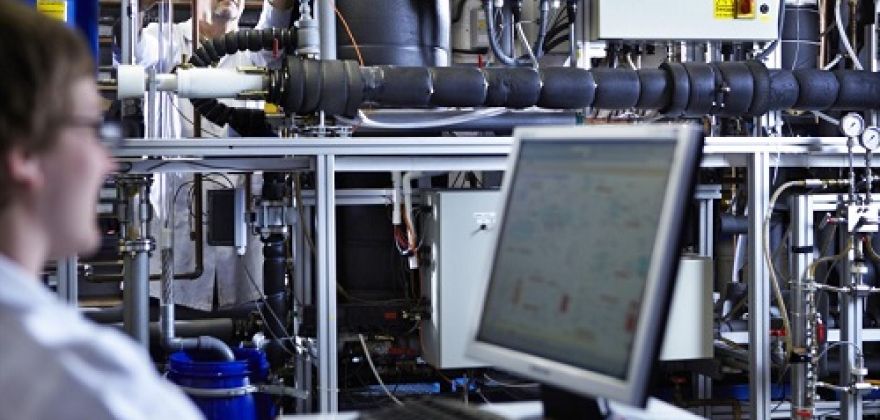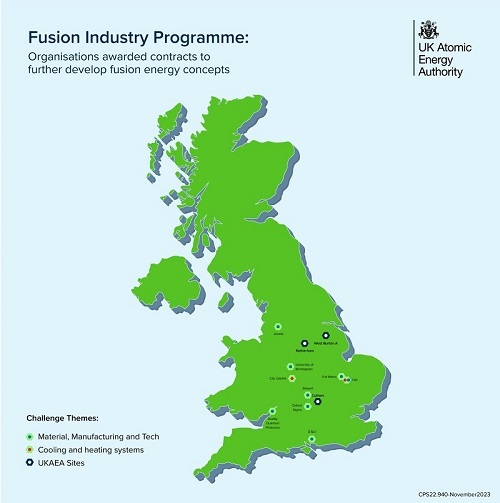CALGAVIN Secures Phase Two

CALGAVIN is proud to have secured a contract for Cycle Two, Phase Two of the UK Atomic Energy Authorities (UKAEA) Fusion Industry Project.
Nine organisations have secured contracts worth £11.6m in total with UK Atomic Energy Authority (UKAEA) to develop innovative technologies for fusion energy, which promises to be a safe, low carbon and sustainable part of the world’s future energy supply.

The contracts range between £500,000 and £1.4m, and are funded by the Fusion Industry Programme which was launched in 2021. This Programme forms part of the Government’s support for the UK’s fusion industry by developing the necessary technology and skills for the future global fusion powerplant market.
The nine organisations have been awarded a total of ten contracts and are a mix of start-ups, small-medium enterprises, established companies, and academia.
The contracts address prototypes for novel fusion materials, manufacturing and technologies; and developing heating and cooling systems for fusion machines.
The eight organisations focusing on manufacturing and materials are 3-Sci Ltd, Alloyed, Duality Quantum Photonics, Full Matrix Ltd, Jacobs, Oxford Sigma, TWI (Coldspray technology), and University of Birmingham. The two organisations focused on heating and cooling technologies are CALGAVIN Ltd and TWI (Coreflow technology).
Tim Bestwick, UKAEA’s Chief Development Officer, said: “Delivering fusion energy is one of the great scientific and engineering challenges of our time. The Fusion Industry Programme is supporting businesses to overcome these challenges and help make fusion a commercial reality.
“These organisations have been awarded contracts after successfully demonstrating the feasibility of their concepts through earlier stages of the Fusion Industry Programme and will now develop their technologies to the ‘proof of concept’ stage.”
This latest announcement follows the award of Fusion Industry Programme contracts earlier this year for organisations which had successfully demonstrated feasibility of technologies focused on digital engineering and fusion fuel requirements.




